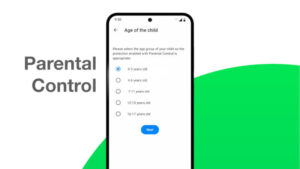Every tech writer on the Internet seems to want to be the one to crack the code and figure out what Microsoft plans to do with Surface. I thought I was one of them until I spent three days trying to write this article. I’ve come to the conclusion that I don’t really care what Microsoft’s plans are or if they’ll pan-out for them. They bore me. They’re irrelevant now.
I suspect we’re getting ready to see if they’re nimble enough to completely reshape their business model, much like IBM had to do more than a decade ago. Who knows what they’re going to do, now that they obviously recognize the-proprietary-operating-system-as-a-billion-dollar-property model has reached its sunset years?
Just what kind of “new” Microsoft are they intending to build? Again, who knows? They seem to be trying-out everybody else’s business plan. They have a tentacle trying, albeit not very successfully, to copy Google’s model with their search engine Bing and their partnership with Yahoo. This Googlization effort might also include the new tablet.
If Surface is merely a fancy proof-of-concept device which is not going to be marketed aggressively, then it’s a page from Google’s original Nexus playbook, which saw Google designing and building a product they intended to be an as-good-as-it-gets smartphone running Android, just to show off the capabilities of their OS. Here we just switch “tablet” for “smartphone” and “Windows” in place of “Android” and voila…
You might remember, Nexus came about not long after HTC brought the first Android phone to market, which was said to be poorly implemented and not very marketable. Almost immediately, Google went to bat (excuse the sports metaphor) and produced Nexus, a sweet phone that could definitely offer Apple some competition. The folks in Asia took notice and were almost immediately marketing Android phones that were capable of appealing to the U.S. consumer.
This would seem to be the road that Ballmer & Company are taking, as they’ve announced they’re only going to offer Surface through the limited venue of the Microsoft Store. As Brooke Crothers points out on cnet, that doesn’t seem to indicate any plans to turn Surface into a cash cow, at least not immediately:
“Ever been to a Microsoft Store? Didn’t think so. There just aren’t that many. I count about 20.
“Compare that with the long list of Apple Stores in the U.S.
“Here’s the challenge: to be a hit, a product has to have sell-through (units shipped that actually sold) in the millions per year, according to analysts.
“So, even if Surface is a good design — which it appears to be — it’s not clear whether Microsoft can sell that many.”
It’s all wait-and-see, even from Microsoft’s end. Redmond obviously has another play in their book, but they haven’t yet decided whether to play it.
They seem to be positioning themselves to possibly pick-up the Apple model and become an all-in-one computer company. It even looked that way when they introduced their little gee-whiz-it’s-a-Windows-tablet, which was done in a manner calculatedly similar to a classic Steve Jobs product intro. I haven’t seen the video of the proceeding, but it wouldn’t surprise me if someone didn’t say somewhere along the way, “just one more thing…”
Obviously, they want their partners, and us, to think they’re ready to bring Surface to market in a big way at the drop of a hat. They already have the marketing channels in place, and the potential to move a lot of product by simply reducing their margin a bit by offering a package deal with Xbox.
All of this seems plain to the folks at The Register, who suggest that Redmond is readying themselves to take the Apple route and that Windows will soon become secondary to a line of Microsoft branded computers:
“Redmonk analyst Stephen O’Grady best explains this come-to-Jobs moment for Microsoft. As O’Grady points out: ‘The market has not generated a large technology vendor oriented around selling software in twenty-two years,’ as companies like Facebook, Google, Red Hat, and more have learned to sell services based upon or built around software. But the software itself? Free.
“Not just free as in beer, to paraphrase Richard Stallman, but also free as in freedom. The new ‘software’ kings give mountains of code away through open-source licensing, because they recognise that their economic value is not in the software itself. Not content to just open-source its software, Facebook has taken to open-sourcing its data centre designs, too.
“Not every company hankers after openness, of course. Apple is more closed than Microsoft ever dreamed of being. But Apple has for years set the pace on reducing the value of software as an economic driver. Apple sells iPhones, not iOS. Yes, it takes margin on all the apps sold through its App Store, but Apple’s own software is inextricably tied to its hardware. The software is, in effect, free.”
If the Microsoft saga is in fact playing out this way, the consequences may be beneficial to Linux according to Steven J. Vaughan-Nichols at ZDNet:
“…if you’re in the PC business do you really want to work with Microsoft or is it finally time to look for a partner that really wants to work with you rather than use you?
“I think it’s time for Dell, HP, Lenovo, and all the other big-time PC vendors to finally start taking the Linux desktop seriously. It’s clear that Microsoft’s agenda no longer is running in parallel with their plans.”
Again, I don’t think that Ballmer has yet made up his mind on how he’s going to play this. No matter how it goes, however, they’re betting a lot on the tablet and smartphone markets, where Android will be their main opponent as it seems impossible to take market share away from Apple at this time.
In the meantime, I don’t very much care. For the time being, Microsoft isn’t a threat anymore. But that could change, so I’m still keeping a wary eye on them.
Christine Hall has been a journalist since 1971. In 2001, she began writing a weekly consumer computer column and started covering Linux and FOSS in 2002 after making the switch to GNU/Linux. Follow her on Twitter: @BrideOfLinux







“The folks in Asia took notice and were almost immediately marketing Android phones that were capable of appealing to the U.S. consumer.”
This is why Microsoft is having such a hard time; they’re keeping their R&D in the US. If they want to sell more Windows, they have to create a way for Asia to knock it off. Don’t forget how Microsoft got started. It sold its OS on cheap Asian knock offs of the IBM PC.
Dell has recently opened stores in China and India promoting Ubuntu pre-installed on computers with large branded displays and training and support set up in stores to help relay the benefits of Ubuntu to the public.
Canonical (Ubuntu corporate sponsor) CEO, Jane Sibler just reported today that Ubuntu has grown 160% in India over the last year. I’m sure these are test-beds to see how successful Linux/Ubuntu can be marketed in the mainstream. Perhaps, it may not be too long before we can see a little more of that push coming to the Western market, as well. As an Ubuntu user myself, I certainly hope so.
I doubt that even Microsoft knows what Microsoft’s plans for Surface tablets are. I’m sure that they plan to abandon the hardware if Windows RT begins to sell well on third-party hardware (doubtful in a world of excellent Google and Apple products). And I’m sure that if the Surface tablet sells like gangbusters, they will be more than happy to stab their hardware OEM’s in the back, declare themselves an Apple-like company, and sell hardware/software bundles directly.
Microsoft is evil, which gives them flexibility.
They are irrelevant. I don’t even think they need to be discussed any more. They haven’t produced anything in a great many years and can only re-dress their one product so many times on their way out.
It won’t take long before they are completely forgotten.
For us this means new innovative computing. Finally.